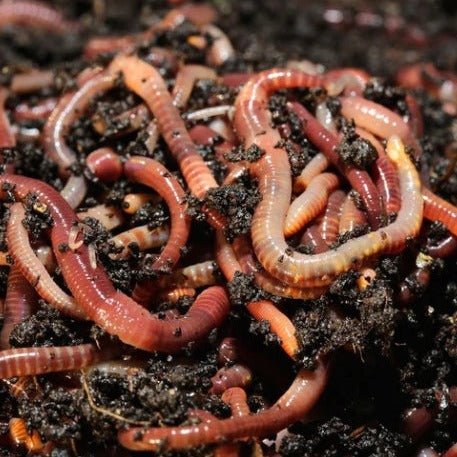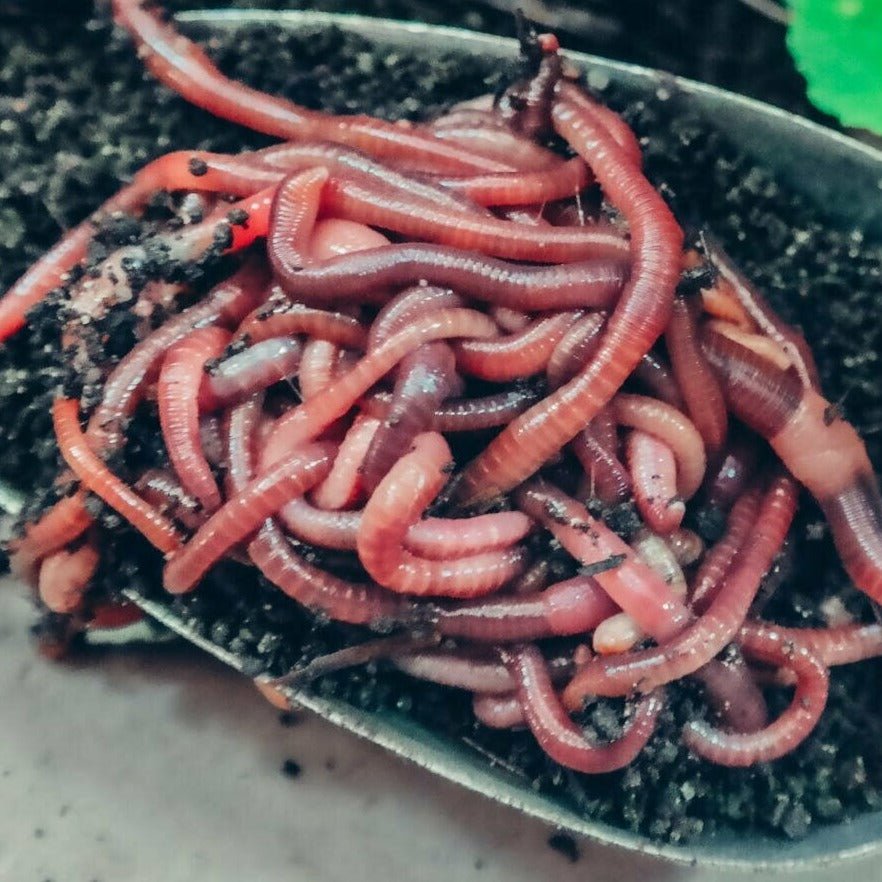Why Choose Red Wiggler Express for Quality and Convenient Fishing Bait?
Why Choose Red Wiggler Express for Quality and Convenient Fishing Bait?
Blog Article
Red Wigglers: The Unsung Heroes of Organic Waste Recycling
Red wigglers, or Eisenia fetida, serve as critical representatives in the organic waste reusing procedure, transforming discarded products right into valuable vermicompost. As the world progressively looks for services to fight waste build-up and improve agricultural performance, recognizing the role of these worms comes to be important.
What Are Red Wigglers?
The amazing strength of red wigglers, clinically referred to as Eisenia fetida, emphasizes their essential function in natural waste recycling. These small, reddish-brown earthworms are typically discovered in disintegrating natural matter, such as compost heap and manure lots. Lake Hickory Bait. Unlike other earthworm species, red wigglers grow in nutrient-rich settings and are highly reliable at damaging down natural products, making them necessary for vermicomposting

(Lake Hickory Bait)In enhancement to their role in waste reduction, red wigglers add to soil health and wellness by enhancing dirt framework and oygenation through their tunneling tasks (Lake Hickory Bait). Their visibility in composting systems not just enhances decay prices however additionally advertises a lasting approach to lose administration, highlighting their relevance in ecological conservation efforts
Benefits of Composting With Worms
Composting with worms, particularly red wigglers, uses various benefits that improve both waste management and soil wellness. Initially, these worms successfully damage down natural waste, converting it right into nutrient-rich vermicompost that enhances soil. This process increases decomposition, enabling a faster recycling of cooking area scraps and various other organic materials compared to traditional composting methods.
In addition, the vermicompost produced by red wigglers is bristling with advantageous microbes, which help improve dirt framework, oygenation, and dampness retention. This enhances the overall wellness of plants, advertising energetic growth and increased yields in yards and agricultural settings. The use of worms in composting minimizes the manufacturing of greenhouse gases, such as methane, contributing to an extra sustainable waste management system.

Just How to Beginning Vermicomposting
Establishing a vermicomposting system is a straightforward process that can generate significant benefits for both waste monitoring and dirt enrichment. To begin, pick a suitable container, such as a plastic bin or wooden box, with appropriate ventilation openings to make certain proper airflow. The dimensions should preferably be about 2 feet by 3 feet, permitting enough room for the worms to grow.
Following, prepare bedding material, which can consist of shredded newspaper, cardboard, or coconut coir. This bedding needs to be moistened to create a suitable habitat for the worms. As soon as the bed linen is in area, present red wigglers (Eisenia fetida) right into the bin, usually around one extra pound of worms for every square foot of surface.
Following the positioning of worms, include organic waste, such as fruit and vegetable scraps, coffee grounds, and smashed eggshells. With these actions, you will efficiently launch a vermicomposting system that adds to sustainable waste management and improves your dirt.
Preserving a Healthy And Balanced Worm Bin
(Red Wiggler Express)Maintaining a worm bin thriving requires routine interest and like guarantee the health of the red wigglers and the effectiveness of the composting procedure. Proper upkeep starts with keeping track of the wetness degrees; the container should perspire but not soaked. A good guideline is to keep a consistency similar to a wrung-out sponge.
Carefully blending the bed linens and food scraps every few weeks stops compaction and guarantees that all worms have access to oxygen. Additionally, it is important to feed the worms properly.
If the bin comes to be too hot or cold, the worms might end up being worried. By diligently managing these variables, one can maintain a robust and effective worm container.
Impact on Sustainable Living
The effective upkeep of a worm container not just benefits the wellness of red wigglers but also adds considerably to sustainable living methods. By reusing organic waste, such as cooking area scraps and yard debris, red wigglers help draw away substantial amounts of material from landfills. This decrease in waste not only reduces greenhouse gas discharges but also lessens the ecological concern linked with waste monitoring.
In addition, the castings produced by red wigglers work as a nutrient-rich organic plant Red Wiggler Express food, enhancing dirt health and wellness and advertising plant growth. This all-natural alternative to chemical plant foods supports lasting farming and gardening techniques, decreasing reliance on synthetic inputs that can hurt ecological communities. Furthermore, worm composting promotes understanding of waste administration, encouraging individuals and communities to embrace even more lasting behaviors.

Verdict
In recap, red wigglers serve as essential factors to natural waste recycling through their effective disintegration of organic materials. By integrating vermicomposting into waste monitoring methods, individuals and communities can dramatically lower waste while promoting ecological sustainability.
Report this page